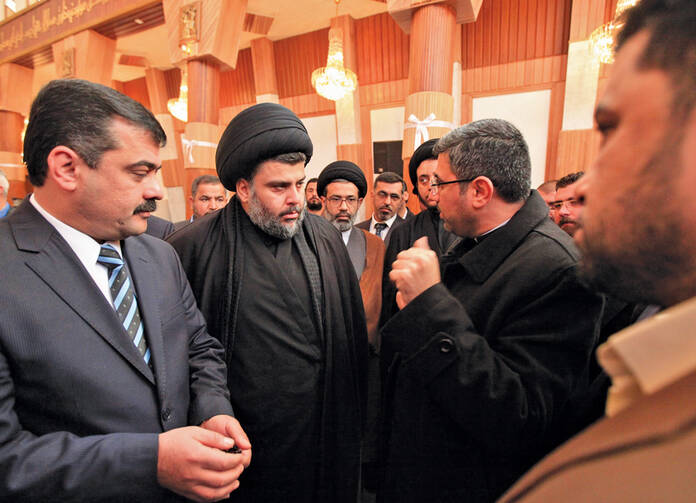Car bombings, sectarian tension and unexpected political setbacks generated a sense of renewed crisis in Iraq during February. A series of bombings struck Baghdad, the capital, and towns to the south on Feb. 28, killing at least 22 people and wounding dozens in mainly Shiite areas.
Iraq’s President Jalal Talabani, a Kurd who has been seen as a unifying statesmen despite the mostly ceremonial authority held by the president, suffered a stroke in December and is being treated in Germany. His absence has created a dangerous power vacuum, and tensions have been escalating between the central government and Kurds in the north, whom Talabani represented.
Iraq’s finance minister Rafaie Al-Esawi, a Sunni, told crowds of Sunni protesters on March 1 that he was resigning “from this government in front of you” at a rally in Iraq’s western province of Anbar, on the border with Syria. For months Sunnis have been protesting their political and economic marginalization.
“More than 70 days of demonstrations and this government hasn’t fulfilled our people’s demands,” Esawi later complained to reporters. “It doesn’t honor me to be part of a sectarian government. I decided to stay with my people.”
As bombings against Shiite targets continue, Sunni families in Baghdad have been receiving warnings from the Army of Mukhtar, a new Shiite militant group. Many are beginning to fear a return to the sectarian violence that bloodied the country in the aftermath of the U.S. invasion. Renewed Sunni and Shiite fighting could easily unravel the fragile progress that Iraq has made as that violence diminished. This time there will be no U.S. troops in Iraq to keep warring parties apart.
Patriarch Louis Raphael I Sako of the Chaldean Church said that Christians are continuing to leave Iraq for many reasons, but key factors have been the lack of security and the nation’s growing Islamist fundamentalism. The patriarch, who was elected on Jan. 31 in Rome, said, “Christians have lost their trust in the future.
“The whole situation is bad,” he added. “There is tension between the government and the opposition, also between the central government and the Kurdish regional government. Everyone is waiting for an improvement. We hope for a real reconciliation between the partners.”
Patriarch Raphael added that “security and freedom” were the most important issues for the survival of the church in Iraq. “When they feel secure, free and equal with the others, [Christians] will stay; otherwise they will leave.”
The Christian population in Iraq has plummeted from 1.4 million, counted in the 1987 census, to perhaps fewer than 250,000 today. Many Christians who fled to northern Iraq are now leaving even this relatively peaceful region, unable to find jobs or housing or because they have been reluctant to settle as the north continues to experience sporadic acts of violence.
Recent attacks in Kirkuk and Tuz Khurmatu left at least 30 people dead and more than 200 wounded. Patriarch Raphael said that Islamist “fundamentalism does not accept Christians.... Extremists think that the reason for their predicament is the West—that is, Christians.”
Despite such animosity, Patriarch Raphael said that Christians are important for helping to provide cohesion in an unstable region. He said at his election in Rome, Pope Benedict XVI “appealed to me so that we remain, as in the past, a bridge for all, between Christians and Muslims and between Iraqi citizens.”








